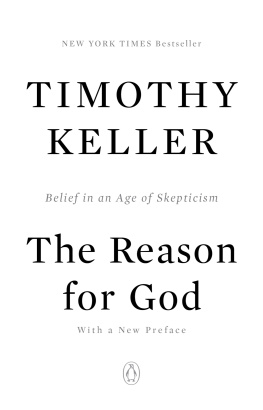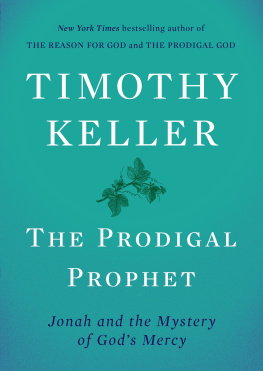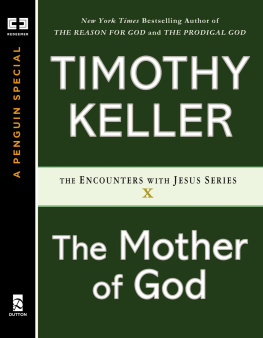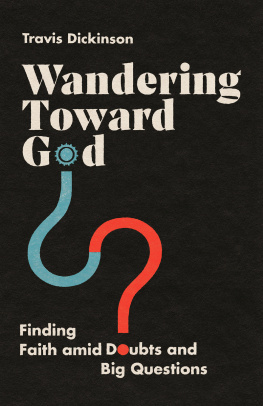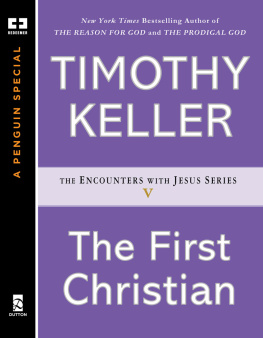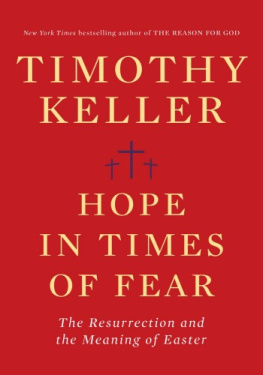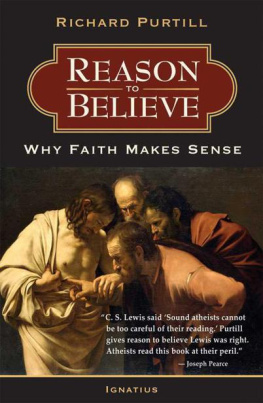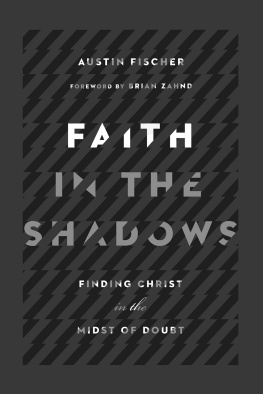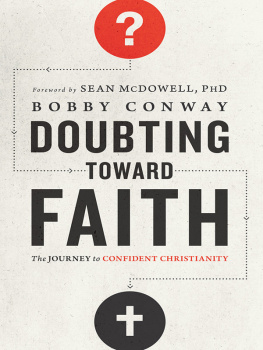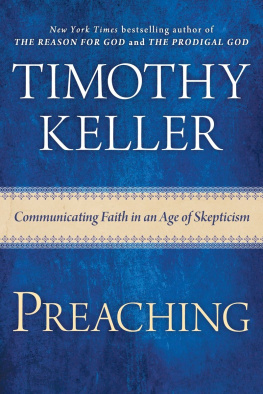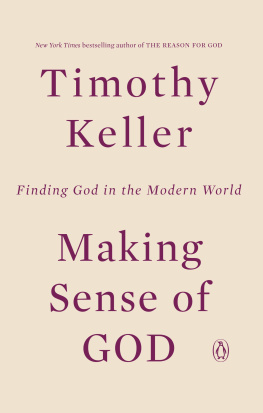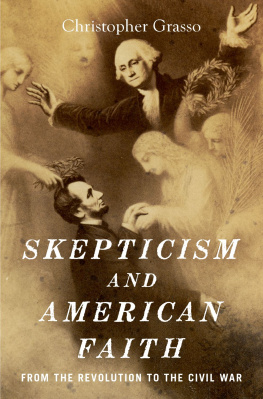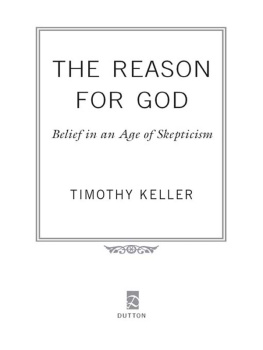First published in the United States of America by Dutton, an imprint of Penguin Random House LLC, 2008
Penguin supports copyright. Copyright fuels creativity, encourages diverse voices, promotes free speech, and creates a vibrant culture. Thank you for buying an authorized edition of this book and for complying with copyright laws by not reproducing, scanning, or distributing any part of it in any form without permission. You are supporting writers and allowing Penguin to continue to publish books for every reader.
The reason for god: belief in an age of skepticism / Timothy Keller.
p. cm.
1. Apologetics. 2. Faith. 3. Skepticism. I. Title.
The publisher does not have any control over and does not assume any responsibility for author or third-party websites or their content.
I NTRODUCTION
I find your lack of faithdisturbing.
Darth Vader
The Enemies Are Both Right
There is a great gulf today between what is popularly known as liberalism and conservatism. Each side demands that you not only disagree with but disdain the other as (at best) crazy or (at worst) evil. This is particularly true when religion is the point at issue. Progressives cry out that fundamentalism is growing rapidly and nonbelief is stigmatized. They point out that politics has turned toward the right, supported by mega-churches and mobilized orthodox believers. Conservatives endlessly denounce what they see as an increasingly skeptical and relativistic society. Major universities, media companies, and elite institutions are heavily secular, they say, and they control the culture.
Which is it? Is skepticism or faith on the ascendancy in the world today? The answer is Yes. The enemies are both right. Skepticism, fear, and anger toward traditional religion are growing in power and influence. But at the same time, robust, orthodox belief in the traditional faiths is growing as well.
The non-churchgoing population in the United States and Europe is steadily increasing.
In short, the world is polarizing over religion. It is getting both more religious and less religious at the same time. There was once a confident belief that secular European countries were the harbingers for the rest of the world. Religion, it was thought, would thin out from its more robust, supernaturalist forms or die out altogether. But the theory that technological advancement brings inevitable secularization is now being scrapped or radically rethought. Even Europe may not face a secular future, with Christianity growing modestly and Islam growing exponentially.
The Two Camps
I speak from an unusual vantage point on this two-edged phenomenon. I was raised in a mainline Lutheran church in eastern Pennsylvania. When I reached my teens in the early 1960s, the time came for me to attend confirmation class, a two-year course that covered Christian beliefs, practices, and history. Its aim was to bring young people into a fuller understanding of the faith, so they could publicly commit to it. My teacher for the first year was a retired minister. He was quite traditional and conservative, speaking often of the danger of hell and the need for great faith. In the second year of the course, however, the instructor was a new, young cleric just out of seminary. He was a social activist and was filled with deep doubts about traditional Christian doctrine. It was almost like being instructed in two different religions. In the first year, we stood before a holy, just God whose wrath could only be turned aside at great effort and cost. In the second year, we heard of a spirit of love in the universe, who mainly required that we work for human rights and the liberation of the oppressed. The main question I wanted to ask our instructors was, Which one of you is lying? But fourteen-year-olds are not so bold, and I just kept my mouth shut.
My family later found its way to a more conservative church in a small Methodist denomination. For several years this strengthened what could be called the Hellfire Layer of my religious formation, although the pastor and people there were personally as gentle as could be. Then I went off to one of those fine, liberal, smaller universities in the Northeast, which quickly began to throw water on the hellfire in my imagination.
The history and philosophy departments were socially radicalized and were heavily influenced by the neo-Marxist critical theory of the Frankfurt School. In 1968, this was heady stuff. The social activism was particularly attractive, and the critique of American bourgeoisie society was compelling, but its philosophical underpinnings were confusing to me. I seemed to see two camps before me, and there was something radically wrong with both of them. The people most passionate about social justice were moral relativists, while the morally upright didnt seem to care about the oppression going on all over the world. I was emotionally drawn to the former pathwhat young person wouldnt be? Liberate the oppressed and sleep with who you wanted! But I kept asking the question, If morality is relative, why isnt social justice as well? This seemed to be a blatant inconsistency in my professors and their followers. Yet now I saw the stark contradiction in the traditional churches. How could I turn back to the kind of orthodox Christianity that supported segregation in the South and apartheid in South Africa? Christianity began to seem very unreal to me, though I was unable to discern a viable alternative way of life and thought.
I didnt know it at the time, but this spiritual unreality stemmed from three barriers that lay across my path. During my college years, these three barriers eroded and my faith became vital and life-affecting. The first barrier was an intellectual one. I was confronted with a host of tough questions about Christianity: What about other religions? What about evil and suffering? How could a loving God judge and punish? Why believe anything at all? I began to read books and arguments on both sides of these issues and slowly but surely, Christianity began to make more and more sense. The rest of this book lays out why I still think so.
The second barrier was an interior, personal one. As a child, the plausibility of a faith can rest on the authority of others, but when we reach adulthood there is a need for personal, firsthand experience as well. While I had said my prayers for years, and while I sometimes had that inspirational, aesthetic sense of wonder at the sight of a sea or mountain, I had never experienced Gods presence personally. This required not so much knowledge of techniques for prayer, but a process in which I came to grips with my own needs, flaws, and problems. It was painful, and was, as is typical, triggered by disappointments and failures. It would take another, different kind of book to go into them. But it needs to be said that faith-journeys are never simply intellectual exercises.

